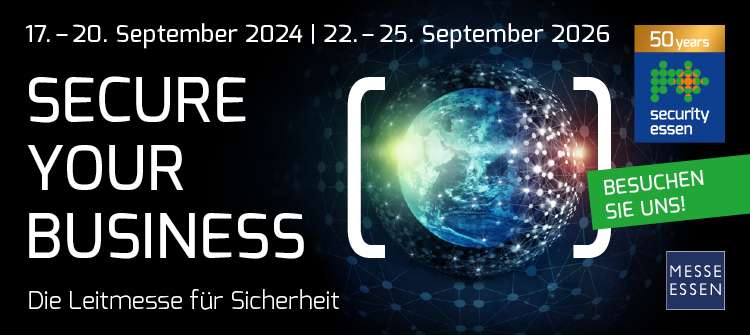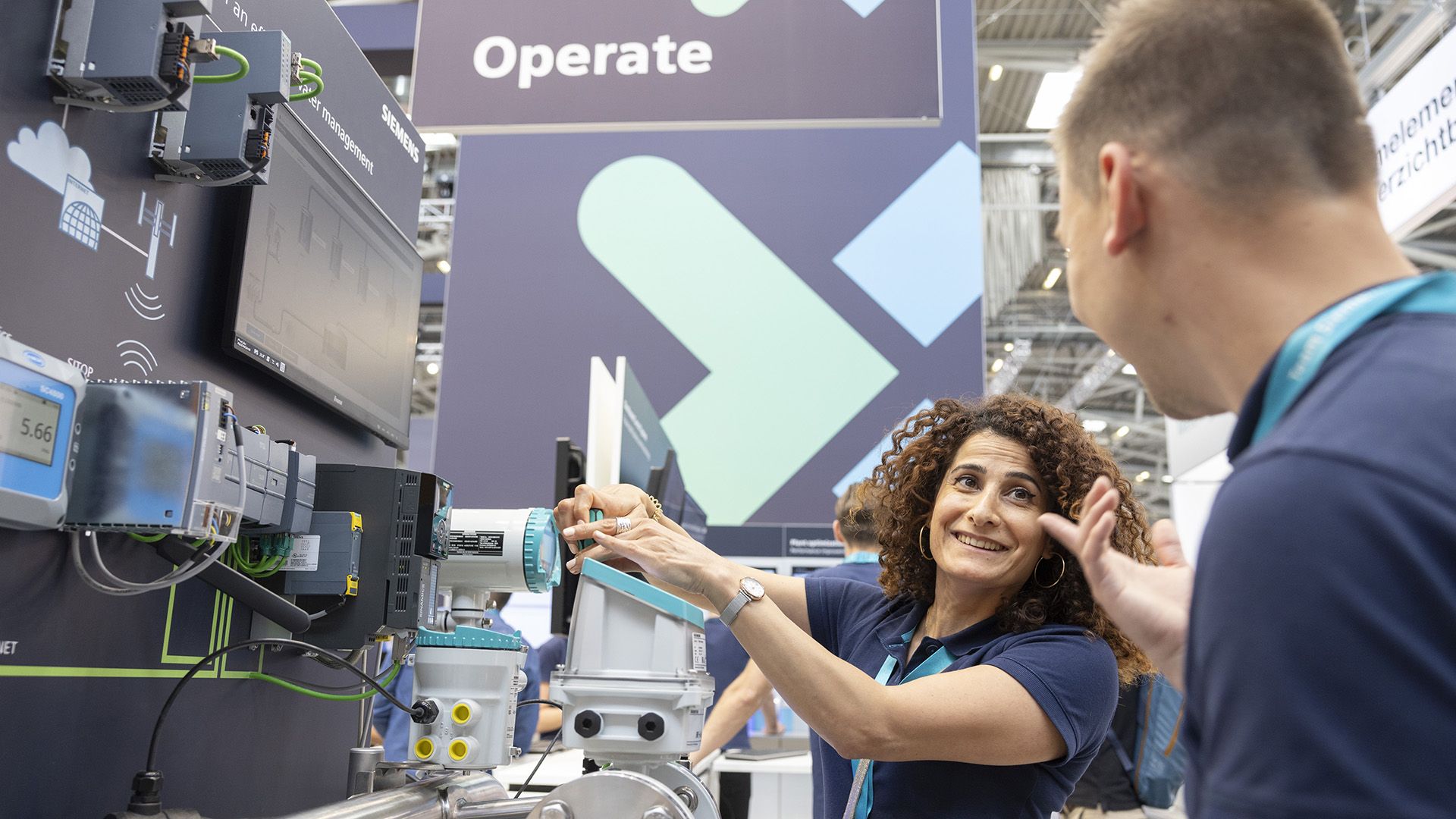
According to the time
The new meta level
The "trade fairs" community meetings are constantly evolving. Just how important personal contact is to everyone involved is shown by the quick return of exhibiting companies and visitors to the halls. Photo: Munich Trade Fair Centre
The "trade fairs" community meetings are constantly evolving. Just how important personal contact is to everyone involved is shown by the quick return of exhibiting companies and visitors to the halls. Photo: Munich Trade Fair Centre
Will trade fairs still have a future? Two years after the coronavirus pandemic, nobody is asking this question anymore. Visitors have long since made up their minds, and organising companies and associations are engaging their clientele with ever new offers - both analogue and digital. That leaves you wanting more and offers many (success) opportunities for everyone involved.
Trade fairs must evolve and transform – this is a demand heard across the country after the pandemic. Of course they have. They have been doing so for over 800 years. There are probably not many marketing instruments that are that old. "Trade fairs" are constantly changing. The business field is constantly changing, it has to adapt - and it adapts. Industries transform, as do challenges and needs - and trade fairs reflect these developments. For centuries, the only constant has been that people want to meet to do business.
It is no wonder that the German trade fair industry is emerging from the crisis with confidence. It is showing determination and is ready for the current challenges. The current situation is a signal of new beginnings; the trade fair industry is showing strength of will, innovative ability and the joy of continuing the trade fair success story. Peter Ottmann, CEO of Nürnbergmesse, is certain: "The German trade fair industry still has the best ahead of it."
He is not alone in his opinion. In a time of multiple crises and major challenges on the one hand and booming industries of the future on the other, business and science are increasingly looking for these platforms. "In the coming years, trade fairs will play an even more central role as a platform for the global economy, for innovative solutions and for knowledge transfer, " Reinhard Pfeiffer and Stefan Rummel, who jointly manage Messe München, are convinced. Increased demand is "the best prerequisite for remaining competitive and growing in the future," say the two CEOs. Digitalisation also contributes to this: "It can individualise and perfect the trade fair visit, but the personal conversation is still irreplaceable," say Pfeiffer and Rummel. "Artificial intelligence will maximise the business benefits of our trade fairs, if not revolutionise them."

"The German trade fair industry still has the best ahead of it."
Peter Ottmann, CEO Nürnbergmesse
Philip Harting notices three things about the first half of the trade fair year:The figures from the Association of the German Trade Fair Industry Auma support this theory: initial surveys show that the first half of 2024 was extraordinarily successful for trade fairs in Germany: Compared to the same period last year, the 188 trade fairs listed by Auma attracted around 120,000 exhibiting companies and 6.7 million visitors between January and June. In terms of exhibiting companies, this represents an increase of seven per cent. In terms of visitors, the increase was smaller at one per cent. For the association, the positive results are nevertheless noteworthy, especially against the backdrop of several strikes in local, rail and air transport in the first quarter, which affected 50 trade fairs. According to Auma projections, up to 250,000 fewer people travelled to trade fairs as a result, which is an average of eleven percent fewer visitors than at the previous event. Philip Harting notices three things about the first half of the trade fair year: "The leading trade fairs in Germany are attracting the world like never before. The internationality of our exhibitors and visitors has rarely been higher. We are delighted to see that more and more decision-makers are visiting trade fairs these days. This means that the quality is increasing and trade fair concepts are moving with the times," says the Chairman of the Association of the German Trade Fair Industry Auma.

"Knowledge transfer, efficiency and inspiration are the decisive factors for the long-term business success of all industry participants."
Detlef Braun, Member of the Board of Management of Messe Frankfurt
Discover new technologies, exchange ideas with experts and make new contacts: B2B trade fairs and consumer shows are offering ever more extensive programmes with events & special shows, lectures & panels, workshops & seminars, live demonstrations, happy hours and live concerts - and therefore many opportunities for people to make their visit to a trade fair a success. The challenges posed by the growing importance of digital and sustainable transformation are not just a concern for the exhibiting companies at the many trade fairs; trade fair organisers are also working on their offerings. The aim is to stage the right mix of physical and digital as a positive experience and make it profitable and smart for their customers, in line with the formula "Commerce - Content - Community - Communication - Context". Detlef Braun, CEO of Messe Frankfurt, is well aware that: "Knowledge transfer, efficiency and inspiration are the decisive factors for the long-term business success of all industry participants."
The right mix makes the difference
Digitalisation means many things, but certainly not the end of trade fairs or face-to-face events. On the contrary. The most visible sign of the change: the current web presences of the organising companies. They bear witness to the new attitude. As dynamic and integrative multichannel platforms, they no longer have anything in common with the websites of previous years. But the new branding is not limited to the exterior: With new ideas and projects, many of the trade fairs themselves are being given new guises. The aim is to create an even better experience for exhibitors and visitors. Two examples: The new brand appearances of Messe Berlin and GHM not only reflect the vibrancy of the trade fair business, they are also an expression of this new self-image. The agency Kleiner + Bold, which is responsible for Messe Berlin's new brand design, presents the company in a dynamic, self-confident and versatile way. Messe Berlin's new logo continues to reference the Brandenburg Gate, symbolising the company's ties to the capital city. Supplemented by the Messe Berlin lettering, the different logo variants adapt to the diverse uses of modern brand communication: Whether classic or digital, in large format or in small displays on social media - the versatile logo is convincing in a wide variety of environments. The six pillars of the Brandenburg Gate become the style-defining key visual. At the same time, the company strengthens the connection between its own events and subsidiaries. Whether Green Week, Fruit Logistica, InnoTrans or ITB - the company's logo is used in many cases. With the refresh of its corporate design, GHM, as the leading organiser of trade fairs for the skilled crafts sector such as Iba, Opti or Internationale Handwerksmesse, wants to position itself even more clearly as an innovative and future-oriented partner in the trade fair industry and the skilled crafts sector. The trade fair brands are well known in their respective sectors, and in future this should also apply even more strongly to the company itself. With the new corporate design, GHM is now strengthening its own corporate brand and creating a clear visual identity to emphasise its role. The strong GHM orange colour is now joined by green and blue tones. The design language is reminiscent of elements from architecture and trade fair construction and is intended to emphasise the momentum of the trade fair activities. Anyone who tries to recall the web presences of the German trade fair organisers before Corona and then looks at the current ones will feel catapulted into a world that makes enthusiasm palpable. The new websites are visible signs of the commitment to bringing people together - live and/or digitally.
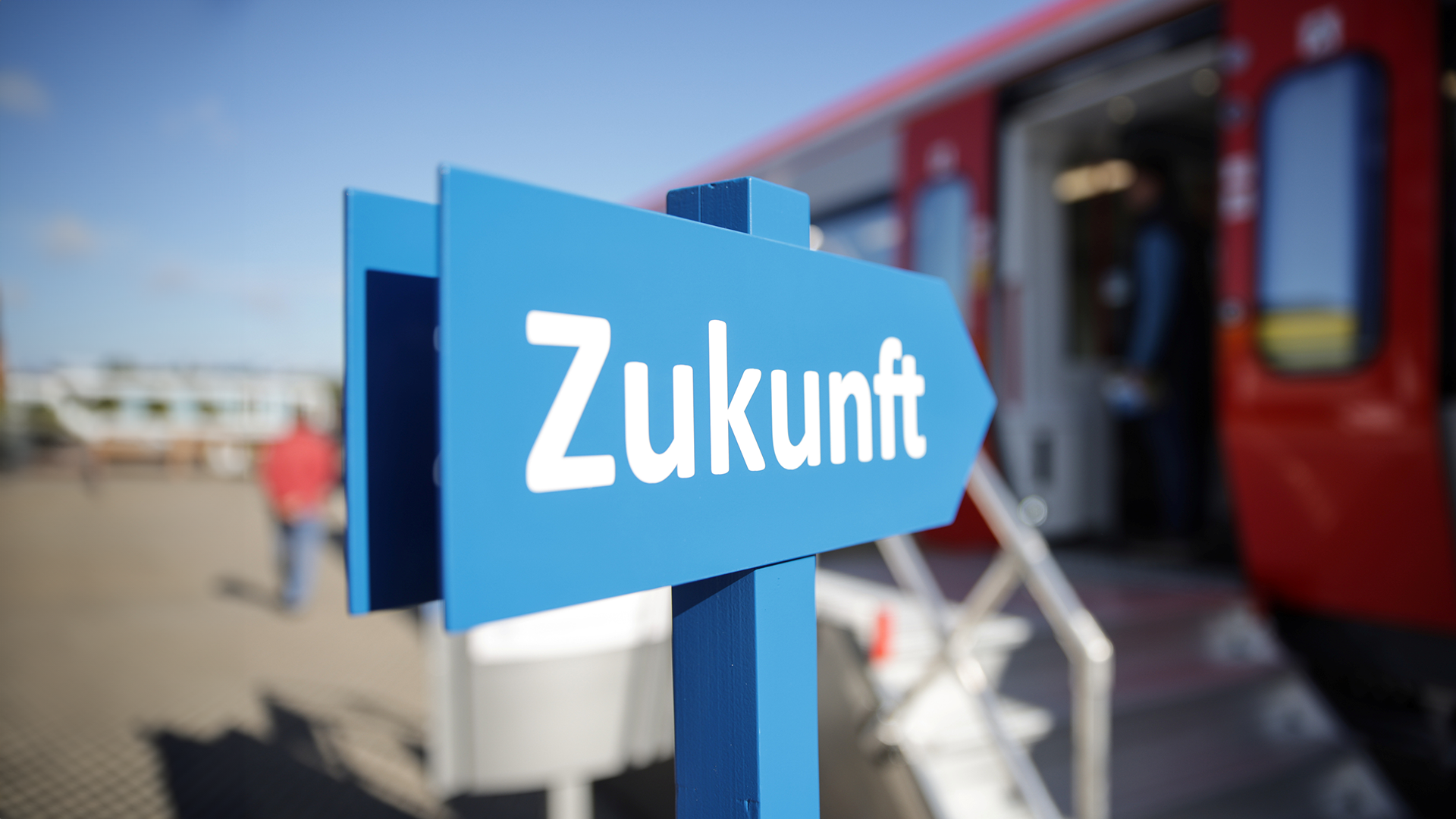
The current web presences of the organising companies are evidence of a new attitude. As dynamic and integrative multichannel platforms, they no longer have anything in common with those of earlier years. Photo: Messe Berlin
AI accelerates transformation
There are many digital channels that still have room for improvement in their usage. Those working in marketing within the organizing trade fair industry can learn a thing or two from the actions of their colleagues in exhibiting companies.The change can also be seen in the professions of employees in the trade fair industry, especially among young talent: this became particularly clear on 1 August, when more than 100 trainees and 40 students started their careers in the trade fair industry across Germany. The number of apprenticeships is growing - as is the demand for IT specialists. While event management assistants, event technology specialists and IT specialists are still the most sought-after job profiles, this could soon change. While trade fair, congress and event management, marketing communication, business administration, business informatics, software development and data science are also in high demand as dual study programmes, digitalisation is changing the needs on the demand side. HR managers in the German trade fair industry describe filling training and study positions in the IT sector as "challenging". According to a survey conducted by the Association of the German Trade Fair Industry (Auma), digitalisation and artificial intelligence are currently creating a number of new job profiles and skills requirements for trade fair organisers, particularly in information technology. Jörn Holtmeier, Managing Director of Auma, knows: "Artificial intelligence is the technological development that will have the greatest impact on the trade fair industry, alongside robotics and augmented and virtual reality. For trade fair organisers, the opportunities are paramount: a good 56 percent are already using AI applications. Trade fair teams need new skills. This must have an impact on the training content of the next generation of skilled workers. As in many sectors of the economy, the trade fair industry's need to invest in appropriate technologies and personnel is growing." He emphasises the thesis that the trade fair industry has always been state of the art and integrates technological innovations at an early stage. AI will further accelerate the transformation. There are many digital channels that still have room for improvement in their usage. Those working in marketing within the organizing trade fair industry can learn a thing or two from the actions of their colleagues in exhibiting companies. While channels such as Facebook, Instagram or Linkedin are more or less established on the social web, YouTube as a channel for trade fairs/trade fair marketing still has room for improvement - especially when you consider that YouTube and Instagram are now popular search engines and are well ahead of Google in some areas. Targeted video marketing tells success stories and brings business to life.
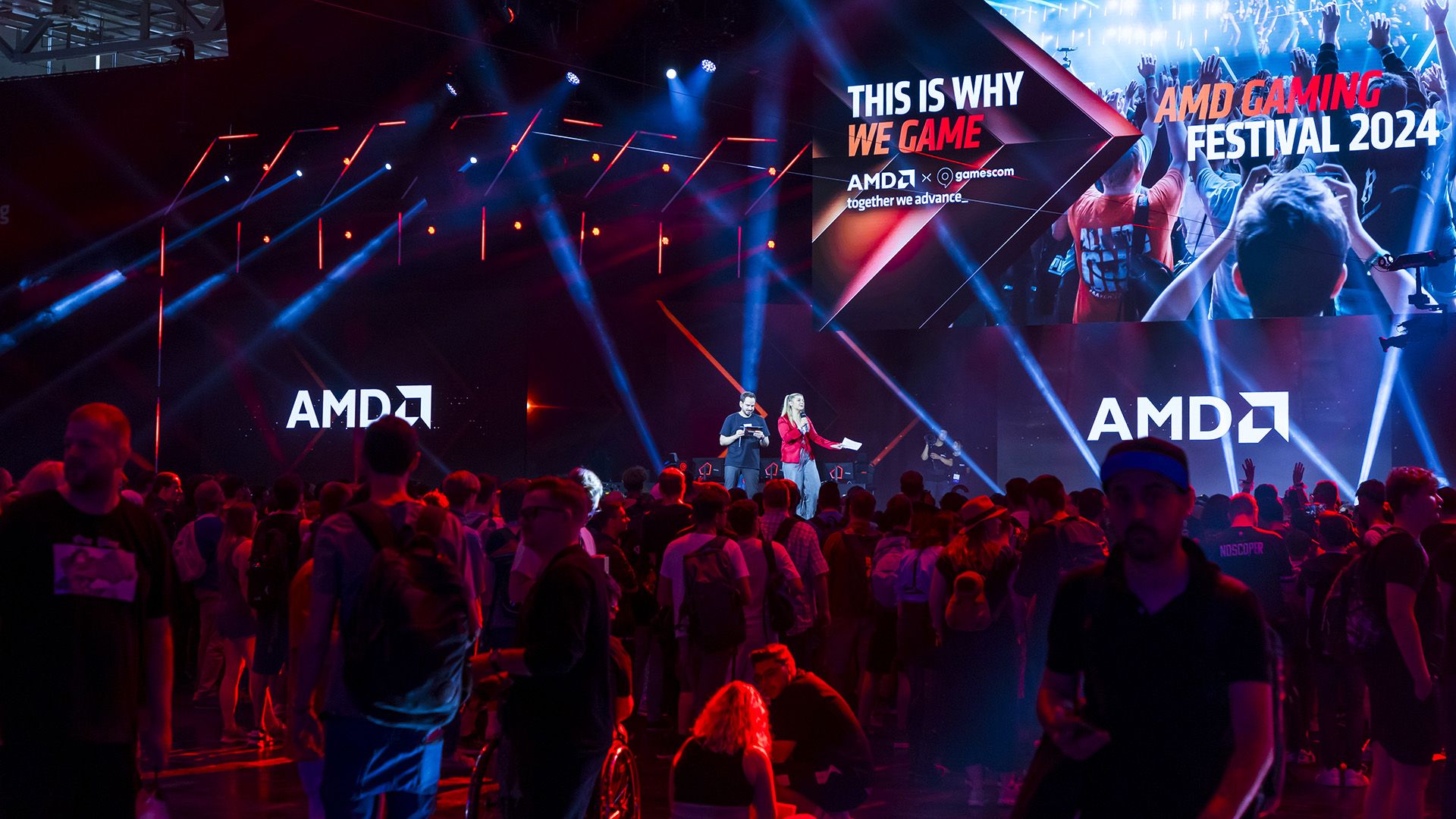
As the largest community in the world, the gaming community celebrated its love of gaming this week. Around 335,000 visitors flocked to Cologne to experience the action on site, and 310 million video views were registered. Photo: Koelnmesse
EA brief digression: digitalisation brings another success factor into play: reach. With visitor numbers reaching new heights and record figures, the number of hits at Gamescom is downright dizzying. In addition to the 335,000 guests this year, millions of people worldwide watched the show programme online: over 310 million digital hits were counted by the end of August, including over 40 million for the Gamescom Opening Night Live. Even though Gamescom cannot be a benchmark - the target group is very online-savvy, but it shows what is possible.
Range is an important factor
Content for communities: Content is the new big topic and as such is on every organiser's to-do list. It is offered to the various industry communities in a variety of ways. Three examples: For example, Messe Essen provides the community of E-World, which is considered Europe's largest energy trade fair, with energy-related topics during the lunch break. A series of webinars will focus on sustainable energy generation and supply. Under the title "Sustainable Power: Green Power Plants for the Energy Transition", the focus will be on various aspects of sustainable energy generation. The webinars in the series are each scheduled to last one hour, making them perfect for a lunch break. The Essen-based company offers insights into the latest developments, technologies and best practices with an extensive digital programme in autumn and winter; participation is free of charge. Koelnmesse packs garden trends and industry insights into the online magazine of its Spoga+Gafa. There is always something new to tell from the world of the world's largest garden and BBQ trade fair. Exclusive insights into the green industry, expert interviews, technical articles, videos - it offers professionals and interested parties an insight into the market and a look at its players. A special focus on the exhibition focal points of Spoga+Gafa is obvious. As a value-added and themed platform, the magazine also aims to take a look behind the scenes of the world's largest garden and BBQ trade fair and enable readers and viewers to deepen their knowledge and be inspired. The offer can be found free of charge on the trade fair website. The decisive factors for the long-term business success of all industry participants: this is what events with personal encounters, the physical experience of innovations and fresh impulses stand for. In mid-August, in the run-up to Automechanika, Messe Frankfurt launched the new information platform "Gateway to Automotive", the international industry hub for automotive topics, for its automotive experts. In addition to news and industry insights from experts, the hub offers a comprehensive supplier directory - and an event calendar. With this content, it offers industry, trade and an interested public an information platform that provides users with a quick overview. The online platform brings together the most important information in the industry 365 days a year. What's more, the online platform compiles news from more than 40 international trade media and also offers interviews with renowned experts, industry insights and expertise on current topics - as videos, podcasts or articles. Those who register receive a personalised news selection tailored to their own interests. All these services are free of charge.
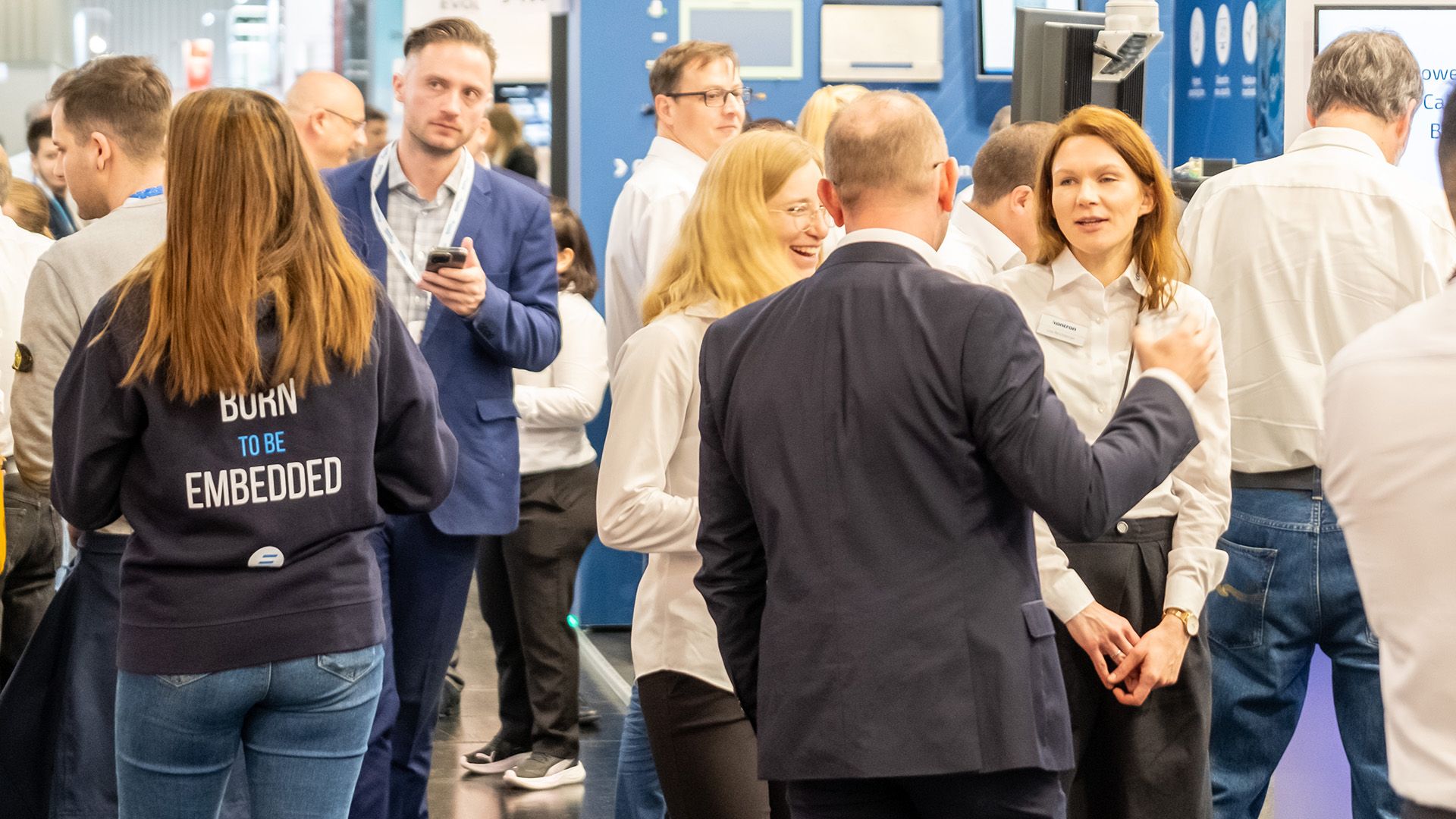
Content is already an important factor. Its importance for the community is likely to increase. Nürnbergmesse has been working successfully with publishers for years. Photo: Nürnbergmesse, Thomas Geiger
Content is hugely important. There must be a reason why the two largest organisers in the world, Informa and RX, have a publishing background. Well, German organisers don't necessarily have to go down this route, but perhaps they need to look for new forms of cooperation with publishers. The Nürnbergmesse decided in favour of a partnership with Vincentz Verlag in Hanover a long time ago. The partnership has been successful. The duo jointly organise the leading trade fair Care for the Elderly and the Coating Shows. The publisher provides the content, while Nürnbergmesse organises the implementation.
Business neither simple nor easy
Organisers of leading international trade fairs know their way around the world - including the media landscape. What if they succeeded in positioning their platforms as meta-levels? They would be, so to speak, above the action – offering curated content 24/7, informing their global communities, enabling them to look beyond (national) borders, engaging their target groups and providing them with all-round information, increasingly addressing the younger generation with influencer events (also to shape the image of the brand) - the fear of missing out (FOMO) would increase. And real encounters remain the USP, the icing on the cake, where not only products or solutions are presented live and experiences have a long-lasting effect. The trade fair business has never been easy. And not boring either. Take the chance!
New for our international readers:
For the first time, we are offering an English version of our magazine in addition to the German edition. The translation was made with the help of AI and is currently in the test phase. We’d love to hear your feedback on this new service!

